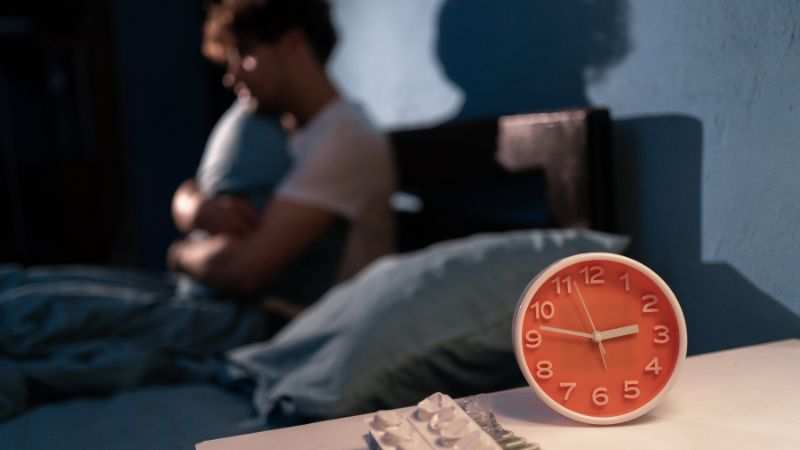
How do I beat insomnia:- Insomnia is a prevalent sleep disorder characterized by difficulty falling asleep, staying asleep, or experiencing restorative sleep. It can lead to daytime fatigue, mood disturbances, and impaired cognitive function. Factors contributing to insomnia include stress, anxiety, medical conditions, medications, and poor sleep habits.
Contents
Strategies to Overcome Insomnia
- Cognitive Behavioral Therapy for Insomnia (CBT-I):
- Sleep Restriction Therapy: Limits time spent in bed to actual sleep time, gradually increasing it to improve sleep efficiency.
- Stimulus Control: Associates the bed with sleep by establishing consistent sleep-wake times and avoiding non-sleep activities in bed.
- Relaxation Techniques: Incorporates methods like deep breathing, progressive muscle relaxation, and meditation to reduce pre-sleep anxiety.
- Cognitive Restructuring: Identifies and challenges negative thoughts about sleep to alleviate performance anxiety related to insomnia.
- Sleep Hygiene Practices:
- Consistent Sleep Schedule: Maintain regular sleep and wake times, even on weekends.
- Bedtime Routine: Engage in calming activities before bed, such as reading or taking a warm bath.
- Sleep Environment: Ensure a quiet, dark, and cool bedroom, free from electronic devices.
- Dietary Considerations: Avoid caffeine and heavy meals close to bedtime; consider a light snack if hungry.
- Physical Activity: Regular exercise can promote better sleep but avoid vigorous activity close to bedtime.
- Medical Interventions:
- Pharmacological Treatments: In some cases, medications like Zopiclone may be prescribed for short-term management of insomnia. Zopiclone is a non-benzodiazepine hypnotic agent that modulates benzodiazepine receptors to promote sleep. It is typically used for short-term treatment due to potential dependency and side effects.
- Consultation with Healthcare Providers: Always discuss with a doctor before starting or discontinuing any medication for insomnia.
Additional Tips for Managing Insomnia
- Mindfulness and Meditation: Regular practice can reduce stress and promote relaxation, aiding sleep.
- Limit Naps: Avoid long daytime naps to prevent interference with nighttime sleep.
- Exposure to Natural Light: Regular exposure, especially in the morning, helps regulate circadian rhythms.
- Avoid Clock-Watching: Turn clocks away to reduce anxiety about falling asleep.
Frequently Asked Questions (FAQ)
Q1: What is the role of Zopiclone in treating insomnia?
A1: Zopiclone is a non-benzodiazepine hypnotic medication prescribed for short-term management of insomnia. It helps initiate and maintain sleep by modulating benzodiazepine receptors. Due to potential dependency and side effects, it is typically used for short durations under medical supervision.
Q2: Can lifestyle changes alone effectively manage insomnia?
A2: Yes, for many individuals, adopting proper sleep hygiene practices and cognitive behavioral strategies can significantly improve sleep quality without the need for medication.
Q3: How long does Cognitive Behavioral Therapy for Insomnia (CBT-I) take to show results?
A3: CBT-I often requires several weeks to achieve significant improvements in sleep patterns. Consistency and adherence to the therapeutic techniques are crucial for success.
Q4: Are over-the-counter sleep aids recommended for insomnia?
A4: Over-the-counter sleep aids are generally not recommended for long-term use due to potential side effects and lack of efficacy. It’s advisable to consult a healthcare provider for appropriate treatment options.
Q5: What should I do if I wake up in the middle of the night and can’t fall back asleep?
A5: If unable to return to sleep within 20 minutes, it’s recommended to get out of bed and engage in a quiet, relaxing activity under dim light until feeling sleepy again. Avoid stimulating activities and bright screens during this time.
Conclusion
Overcoming insomnia involves a multifaceted approach that includes behavioral modifications, cognitive therapies, and, when necessary, medical interventions. Cognitive Behavioral Therapy for Insomnia (CBT-I) has demonstrated efficacy in addressing the underlying thoughts and behaviors contributing to insomnia. Additionally, maintaining good sleep hygiene is essential in promoting restful sleep. In certain cases, short-term use of medications like Zopiclone may be appropriate. Zopiclone acts on benzodiazepine receptors to facilitate sleep initiation and maintenance. However, due to potential risks such as dependency and side effects, its use should be closely monitored by a healthcare professional. It’s imperative to consult with a doctor to determine the most suitable treatment plan tailored to individual needs, ensuring both safety and effectiveness in managing insomnia.
Author Details




Medical content by qualified psychiatrists
Our editorial policy

Zopiclone precautions Read our potential abuse notice

Looking for a seller? Locate the best Zopiclone vendor






